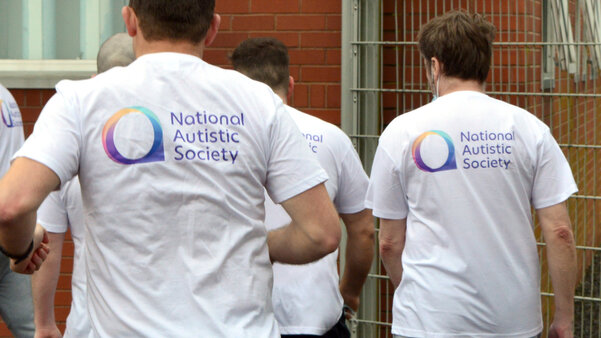Prison becomes first to achieve advanced Autism Accreditation
Published on 06 January 2022

HMP Parc has become the first prison to achieve our advanced Autism Accreditation award, after being recognised as a ‘beacon of autism best practice’ by our advisers.
The category B men’s prison and young offender institution in Bridgend, south Wales, has been working closely with us over a number of years to achieve these high standards.
Since establishing Cynnwys (inclusion in Welsh) – a dedicated unit for autistic people, people with learning disabilities or significant brain injuries – the prison has seen a significant reduction in violence, self-harm, rule breaking, and substance misuse.
Parc takes a person-centred approach which sees offenders assessed during induction to identify any additional needs. The prison then makes some simple changes to support neurodivergent people, including:
- providing a sensory room
- offering eye masks and ear plugs
- painting wings and landings different colours
- allowing people to collect food or medication at the start or end of queues
- and putting up signs reminding visitors not to slam doors.
Whole prison approach
Christine Flintoft-Smith, the National Autistic Society’s Head of Autism Accreditation, said: “What Parc has managed to achieve is fantastic. The whole prison approach has been really good and required a high level of inter-departmental cohesion.
“Parc has set the bar high as a beacon of autism best practice for other prisons. It goes far above and beyond what is considered best practice and is a really positive sign for the criminal justice system as a whole.
“We understand how difficult it is for prisons to even achieve initial accreditation. Parc has invested time, resources and challenged archaic prison attitudes to implement some major developments that give offenders the best chance.
“Other prisons should look to follow the innovative work taking place at HMP Parc. The same support should be available to every autistic person in custody.”
Reasonable adjustments
Arianwen Selway, Parc’s Learning Disability Nurse, said: “Many go through the justice system without knowing they are autistic or have an additional learning need.
“If these aren’t identified and supported, it can have a significant impact on physical and psychological well-being as well as their ability to complete their sentence and reintegrate into society.
“Prison can be an overwhelming environment and the bright lights, noise and unfamiliar faces are disorientating for some of those in our care.
“We have men who can’t tell the time, get confused by which landing they are on because everywhere looks the same and they can struggle to comply with complex prison rules and processes which can lead to confrontations and incidents with staff and other offenders – so it’s paramount that reasonable adjustments are made.”
In July 2021, a report commissioned by the then-Justice Secretary, Robert Buckland MP, called for more coordinated and effective support for neurodivergent people, including autistic people.
The review found better assessment, treatment and support in prisons could help break the cycle of crime. We have urged the Government to accept the report’s recommendations in full.
Person-centred support
Ian Coles, deputy director of the G4S-managed prison, said: “The team have risen to the challenge in creating a specialist unit to support those in need, and have worked tirelessly to deliver high quality support services.
“The National Autistic Society has highlighted the excellent and creative work carried out by staff to deliver person-centred support and it is fantastic that their hard work has been recognised.”
Autism Accreditation – which is the UK’s only autism-specific quality assurance programme – has three levels, with advanced being the highest.
In 2015, HMP Feltham was the first prison in the UK to go through the accreditation programme after working with our charity to develop standards.
HMP Parc, HMP Wakefield, HMP Whatton and the National Probation Service in Lancashire followed in 2018-19, and Parc has now become the first to achieve advanced accreditation.
Further information
- Find out more about our internationally recognised Autism Accreditation.
- Read the independent review’s report, Neurodiversity in the criminal justice system: A review of evidence.
- Read our guidance on criminal justice, for autistic people, families and professionals working in the system.
